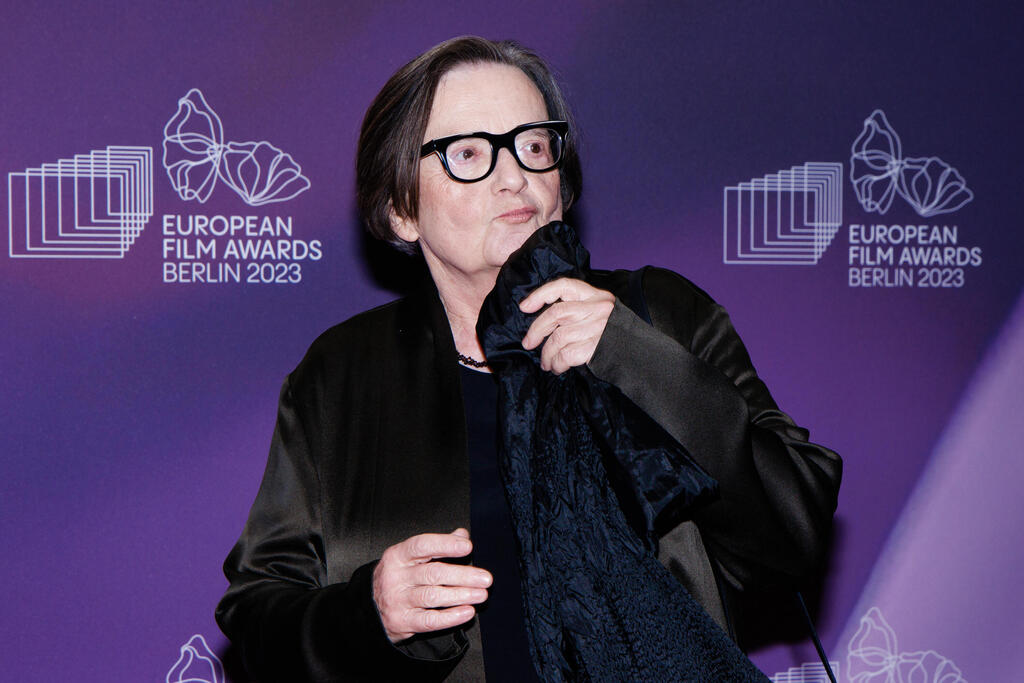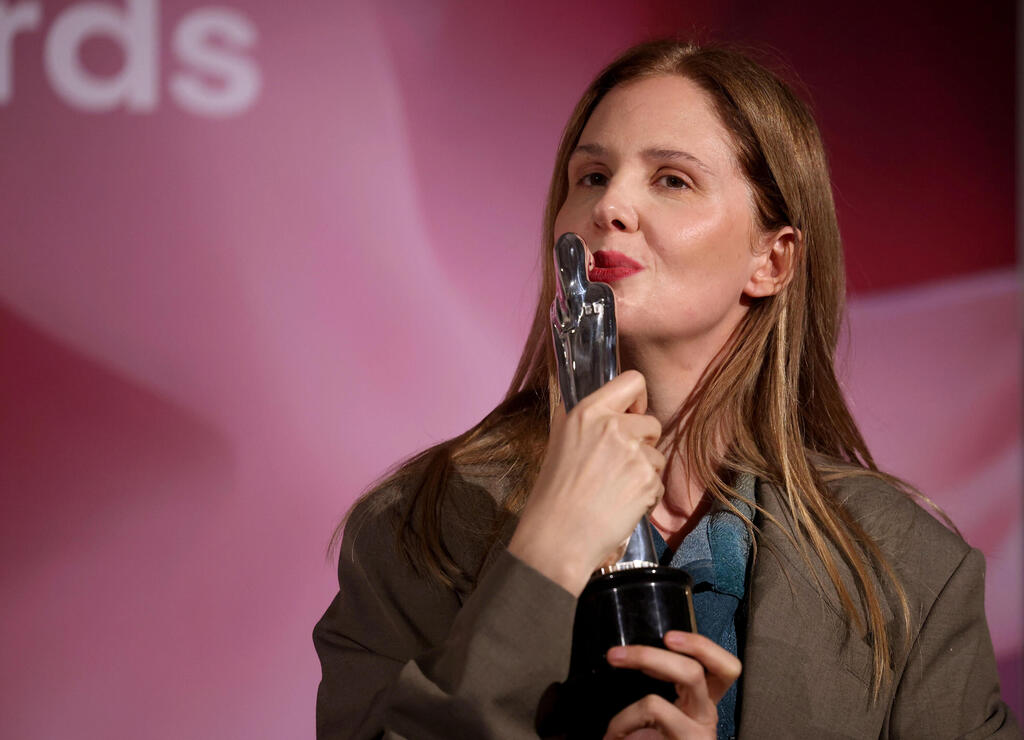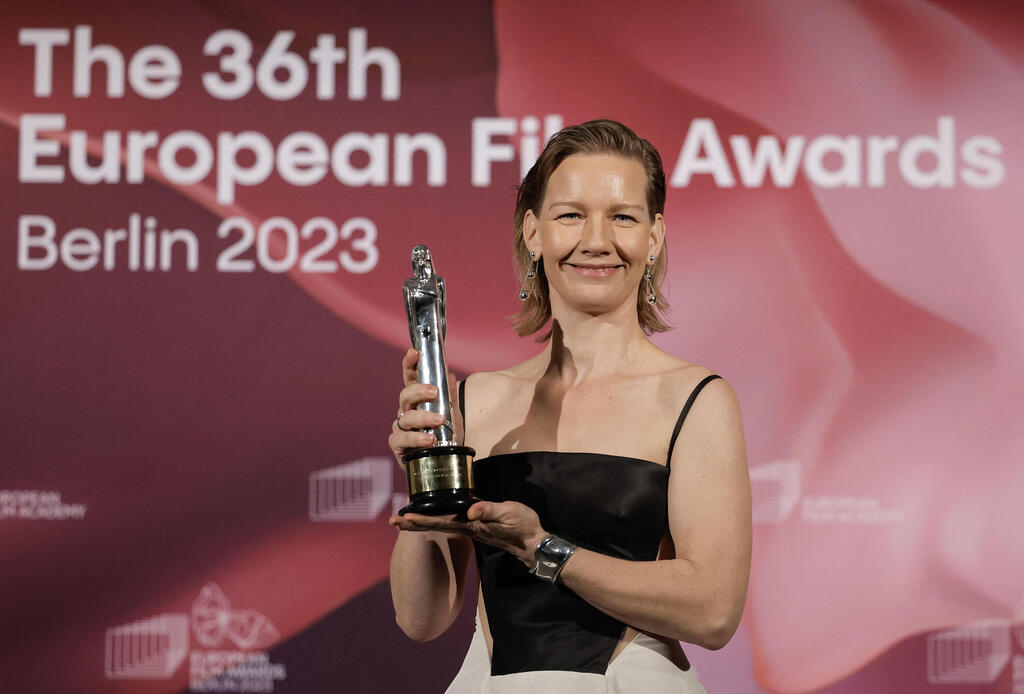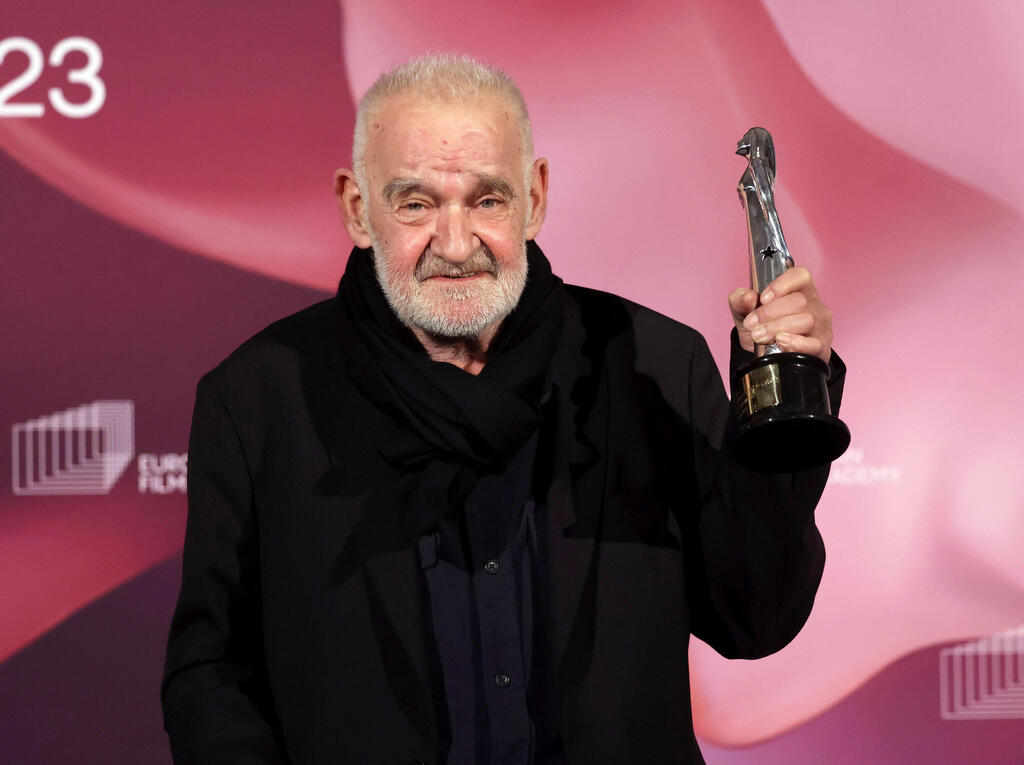Between the impressive set-up and glistening dresses, Saturday night’s 36th European Films Awards ceremony in Berlin, dubbed Europe's Oscars, struggled to overlook the massacre on October 7 and the consequent war in Gaza.
More stories:
In her opening speech, Polish director Agnieszka Holland, president of the European Film Academy addressed the growing instances of antisemitism and Islamophobia across the Old Continent and whether enough was being done to combat these phenomena.
German director and actress Maria Schrader (Unorthodox, She Said) read a poem by Yehuda Amichai during the ceremony, "From the place where we are right flowers will never grow in the spring. This is a poem that I have been carrying with me in recent weeks," Schrader explained while presenting the Best Director Award.
In a touching tribute to creators and performers who passed away this year, the audience was asked to stand. Among the names honored were promising director Yahav Winner, who was murdered in the Hamas terrorist attack on Kibbutz Kfar Aza, and Israeli Hollywood star Chaim Topol.
The big winner of the night was Justine Triet’s acclaimed French courtroom drama Anatomy of a Fall, which scooped up 5 awards, the Best Film Award.
5 View gallery
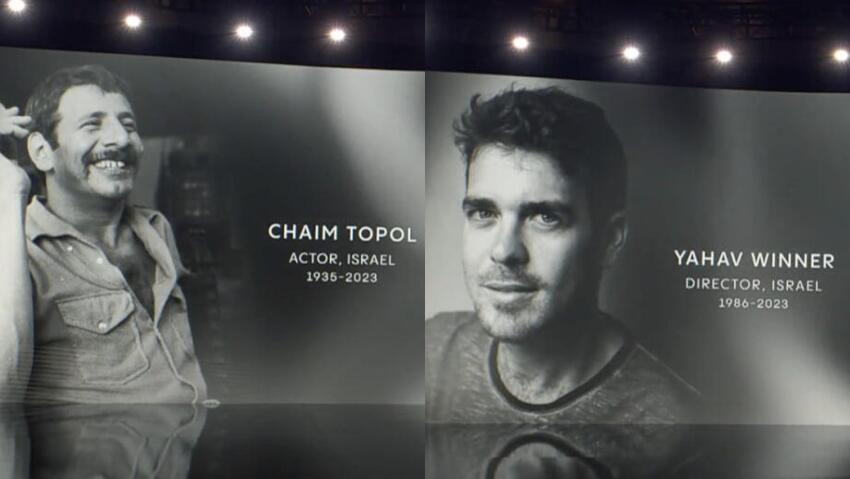

Tribute to actor Chaim Topol and Director Yahav Winner at the European Films Awards
(Photo: Screenshot)
The film, which also won the Palme d'Or at the last Cannes Festival, is about a German novelist suspected of murdering her husband who fell to his death. In her trial, she tries to prove her innocence.
Trier received the Best Director Award and, along with her partner Arthur Harari, won the Best Screenplay Award. In her acceptance speech, Trier expressed gratitude that her relationship with her partner survived the arduous scriptwriting process, especially in times of great uncertainty during the pandemic.
The excellent German actress Sandra Hüller rightfully won the Best Actress award for her role in Anatomy of a Fall. Hüller also asked the audience to observe a minute’s silence to reflect and imagine peace, which the audience honored. Additionally, Trier's film also received the Best Editing Award.
Danish star Mads Mikkelsen won the Best Actor award for his performance in The Promised Land.
At the ceremony, lifetime achievement awards were presented, including one to British film and television star Vanessa Redgrave, a member of a distinguished acting dynasty, who was unable to attend the event.
Redgrave, 86, a two-time Cannes Festival Best Actress winner for Morgan: A Suitable Case for Treatment in 1966 and Isadora in 1969 and an Oscar winner for Best Supporting Actress in Julia in 1978, added another trophy to her extensive collection.
Her famous films include Blowup; Playing for Time; Mary, Queen of Scots; Agatha; Yanks and Howards End. Redgrave, a committed political and social activist, was previously a staunch opponent of Zionism and a fervent supporter of the Palestinians.
In her activism, Redgrave met with terrorist organization leaders, visited refugee camps, funded propaganda films, compared Israel to South Africa's apartheid regime, called for a cultural boycott of Israel and advocated for cutting diplomatic ties with it.
In the early 1990s, following the Oslo Accords, Redgrave changed her stance toward Israel. She became enthusiastic about the peace agreements and began to foster the idea of coexistence between the two peoples. Among other things, she financially supported the West-Eastern Divan Orchestra of Daniel Barenboim, which includes musicians from Arab countries and Israel.
The second award was presented to Hungarian director Béla Tarr (Satantango, The Turin Horse), who, unfortunately, retired from filmmaking in 2011.
Tarr is known for his demanding, bold, abstract, philosophical and challenging works, characterized by long takes and a penchant for black-and-white cinematography. His films address issues of morality, human existence and social structures. In 2013, Tarr founded a film school in Sarajevo, Bosnia, where he has been living in recent years.
Regrettably, this year’s edition saw no Israeli representation. However, two films by Israeli creators were included in the extended list of nominations by the European Film Academy - The Vanishing Soldier by Dani Rosenberg and Tatami, a joint project by Guy Nattiv (Golda) and Zar Amir Ebrahimi. Unfortunately, neither made the cut.



